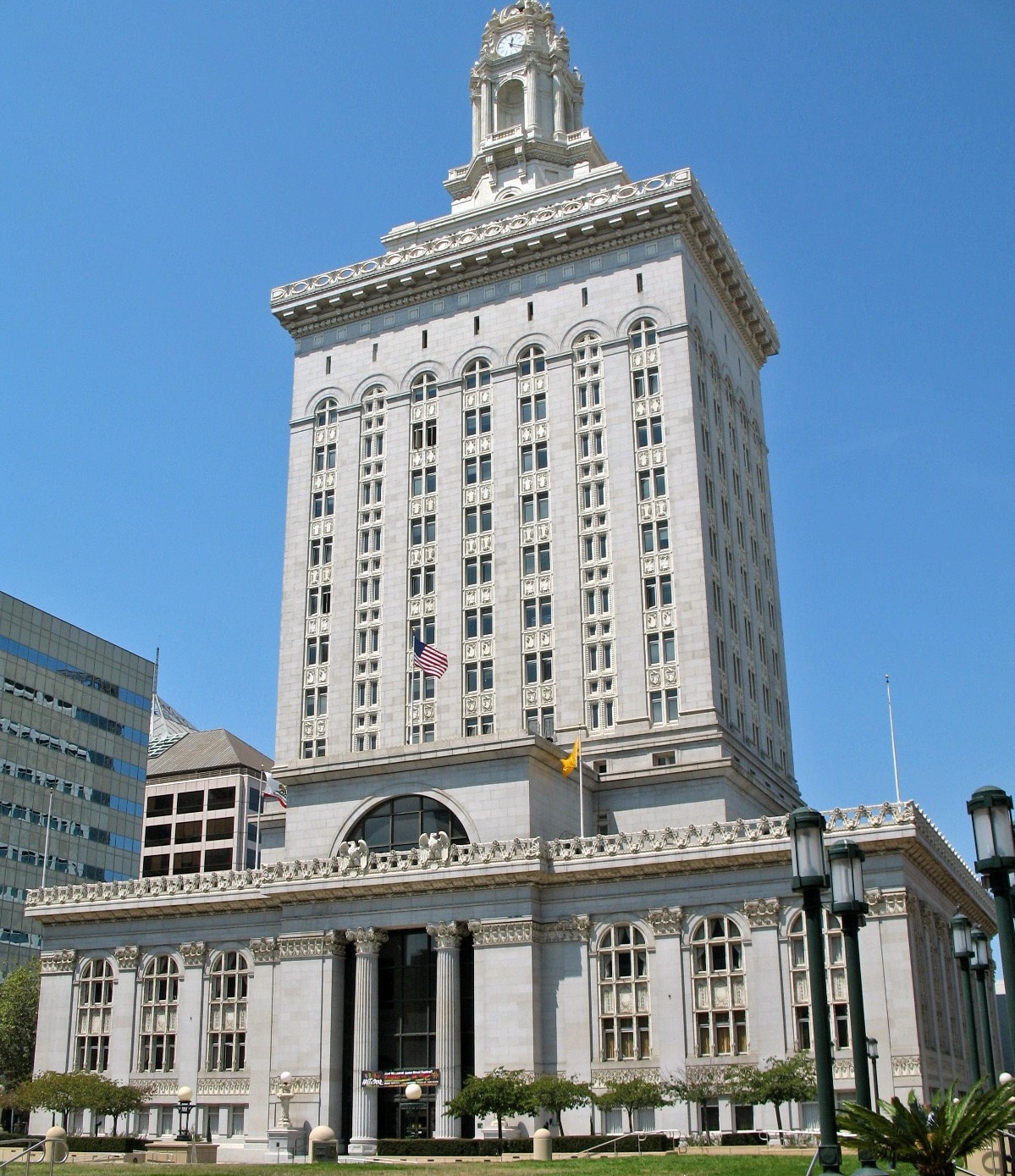OAKLAND, Calif. (CN) — A question of whether Oakland should get an exemption to seek funding for up to 13,000 new units of low-rent social housing will make its way to voters this November, city leaders decided Tuesday.
The Oakland City Council took several actions Tuesday designed to address a growing housing and homelessness crisis. The city has seen a 24% increase in homelessness since 2019, and nearly two out of three people experiencing homelessness are unsheltered, living outdoors or in tents or vehicles.
Councilmember Carroll Fife suggested seeking funding for up to 13,000 new units of low-rent social housing, which must go through the ballot process. Article 34 of the state Constitution requires proposed low-rent housing projects to get approved by the majority of local voters.
Fife last week pushed for a cap on rent increases at 3% this year to prevent a 6.7% increase, the largest allowed in city history, which Councilmembers Noel Gallo and Loren Taylor opposed.
That action received a second vote of approval from the City Council, and the proposal for large amounts of publicly funded housing will head to the ballot for voters to decide.
“In a city where 60% of the residents are renters, a vast majority of whom are rent burdened, access to low-income and very low-income housing is critical to ensuring that more Oakland residents don’t face homelessness,” Fife wrote.
Oakland's Housing Element progress report for 2020 showed the city has only met 43% of its regional housing needs allocation goals for very low-income housing and 25% for low-income housing. Fife said about 13,000 units are needed to address Oakland’s deficit in low-income and very low-income housing before 2031.
Fife cited a Los Angeles Times article on Article 34’s roots in Eureka, Calif., as a way residents opposed their housing authority’s efforts to use federal funds for low-income housing development.
“Article 34 sought to maintain the status quo of housing segregation following the adoption of the Federal Housing Act in 1949, which banned explicit racial segregation in public housing,” Fife wrote.
She added it has been a barrier to developing publicly funded low-rent housing across the state.
“In order for us to meet our housing goals for the individuals who need it the most, we need to create an exemption for the city of Oakland to create those units,” she wrote.
Fife’s proposal garnered support from Vice Mayor Rebecca Kaplan and Council President Nikki Fortunato Bas. It passed unanimously.
The city also approved creating a rent registry, like nearby San Jose, Berkeley and Richmond, as another way to expand enforcement of rent control and protections for tenants. This ordinance, setting an annual requirement that owners of controlled rental units report rent and tenant information and provide evidence of compliance with rental registration when filing rent increase petitions, received unanimous support.
City leaders also passed Kaplan’s request to declare a local emergency due to the homelessness crisis and endorsed the “Home Together 2026” plan for reducing homelessness and reducing racial disparities among homeless residents by 2026.
Many landlords attending the meeting Tuesday spoke against the rent cap of 3%, saying it will impact small local business owners more than large corporate landlords. But others said the city needs to do more to prevent homelessness.
“I’ve been astounded to see how the city has opposed projects for housing people,” said Ari Pomerantz, criticizing Oakland’s building department, which she said creates confusing and expensive processes which will perpetuate homelessness.
Iris Starr said the declared homeless emergency “is great in words, but nothing has been done.”
“People of Oakland have survived many years of these homeless 'living' conditions,” Starr said. “They continue to be discarded as human beings … treated like they’re not worthy of care, and continue to be further marginalized and punished.”
Along with capping rent increases, another city ordinance requiring landlords to pay relocation expenses for tenants evicted through no fault of their own survived Supreme Court review Monday.
That ordinance was challenged by Bay Area property-rights advocates and conservative organizations on behalf of an Air Force couple who leased their home to another family while on the East Coast and later reclaimed the property when they returned to Oakland. The Court upheld the Ninth Circuit Court of Appeals’ finding that Oakland has the right to regulate owners’ use of their land as a business.
Subscribe to Closing Arguments
Sign up for new weekly newsletter Closing Arguments to get the latest about ongoing trials, major litigation and hot cases and rulings in courthouses around the U.S. and the world.









